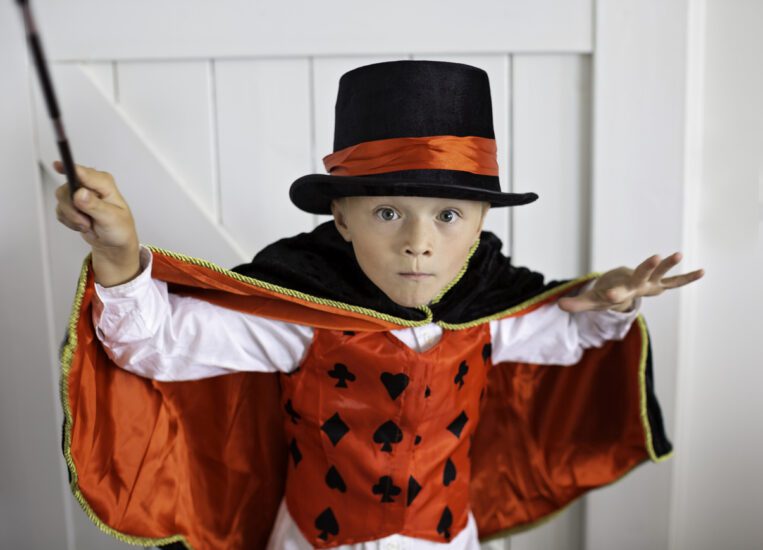National Magic Day is coming up on October 31st! Read on to learn about the many social and educational benefits magic can provide for children of all ages.
1. Self-confidence. As with any performing art which requires practice to master, a natural sense of accomplishment comes with finally “nailing” a convincing magic trick. Learning magic may have some added benefits as well, though – recent studies have reported that children with ADHD experienced a massive boost in both self-esteem and confidence after learning magic tricks. Experts also point out that magic programs are particularly unique in that they can be conducted remotely, and “virtual summer magic camps” are becoming increasingly popular with students of all ages.
2. Executive functioning skills. Magic is sometimes referred to as “sleight of hand” – which is exactly what it is! Learning magic tricks helps with many skills that require dexterity and hand-eye coordination. In addition, the act of performing a magic trick is a multi-step procedure that encourages prioritizing tasks, organization of materials, and time management – all core executive functioning skills needed for academic success!
3. Social benefits. “Want to see a cool magic trick?” is perhaps one of the greatest ice-breakers of all time! Many students who are more reserved find that magic is a great way to introduce themselves and make new friends. Adults love magic tricks too, so it’s a great skill to have for the future as well!
4. Creativity. Magic is rooted in creativity, and much of what drives new magicians is the desire to come up with their own original tricks that are sure to “wow” their friends and family. Recent studies show that students who learn magic experience significant psychological, perceptual, and social benefits. In addition, parents often report that introducing magic had a positive impact on their child’s mental health and overall wellbeing.
5. Encouraging a growth mindset. As we’ve discussed on our blog before, a growth mindset is the idea that we can succeed through genuine effort, perseverance, and self-confidence. In many cases, repeated failures can be a good thing because they encourage us to try again – and in the process, we develop resilience along with new strategies. Magic can be a difficult art to become skilled at, but students are sure to recognize their hard work paying off when their friends and family start saying, “Wait…how did you do that?!”
6. Public speaking. Another topic we’ve discussed on our blog is public speaking – and just how nerve-racking it can be! Public speaking is the most commonly held fear, and it’s completely normal to feel uneasy when addressing an audience. Because the act of performing a magic trick involves speaking to an audience (and often encourages group participation), it can be a great way for students to become more comfortable with public speaking.
7. Spending money. As a side bonus, magic is also an in-demand skill that many students turn into a side job during high school and college. Children’s birthday parties and local events are always hiring budding magicians, and this can be a fun and rewarding way to earn some extra cash!




